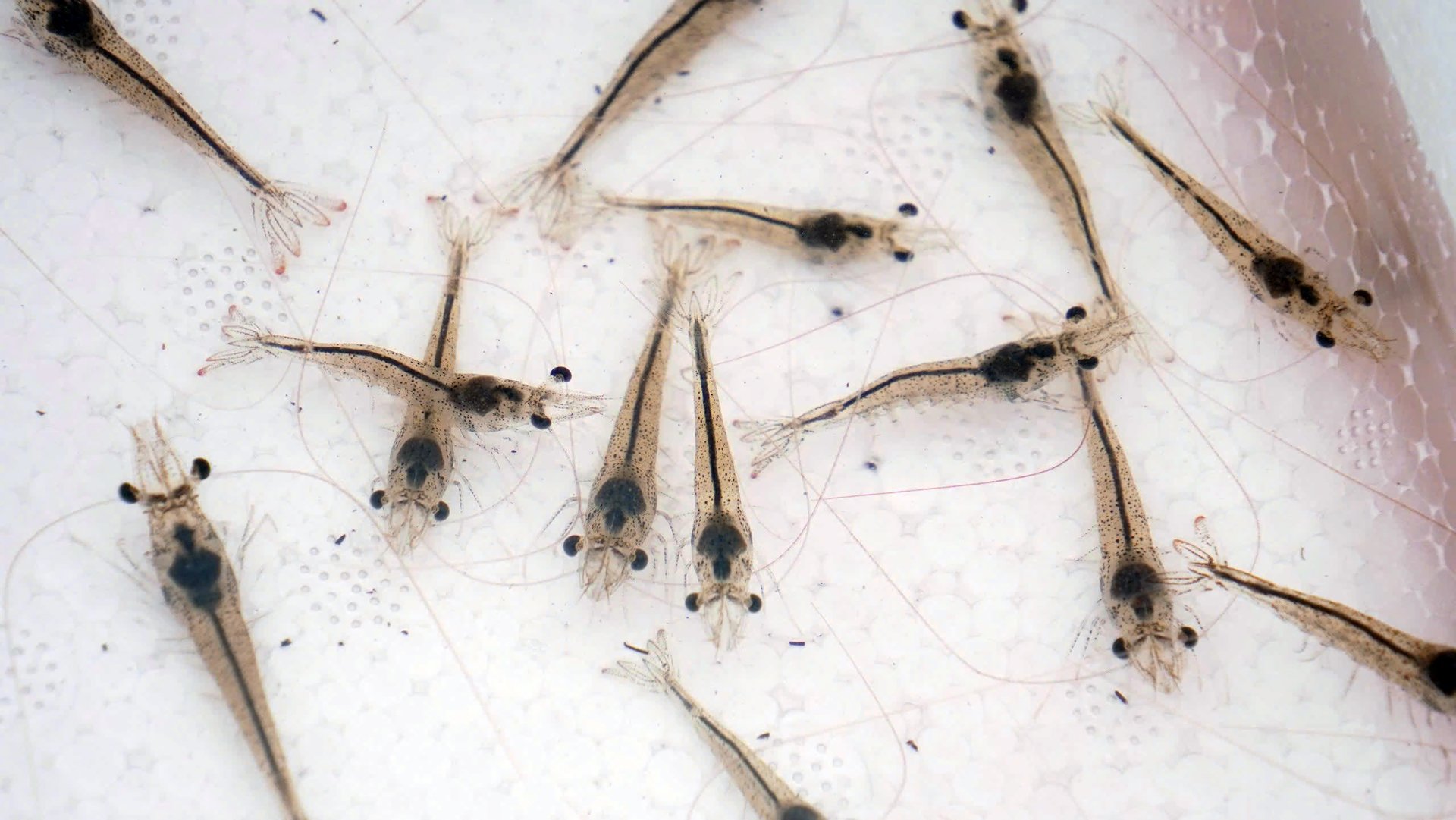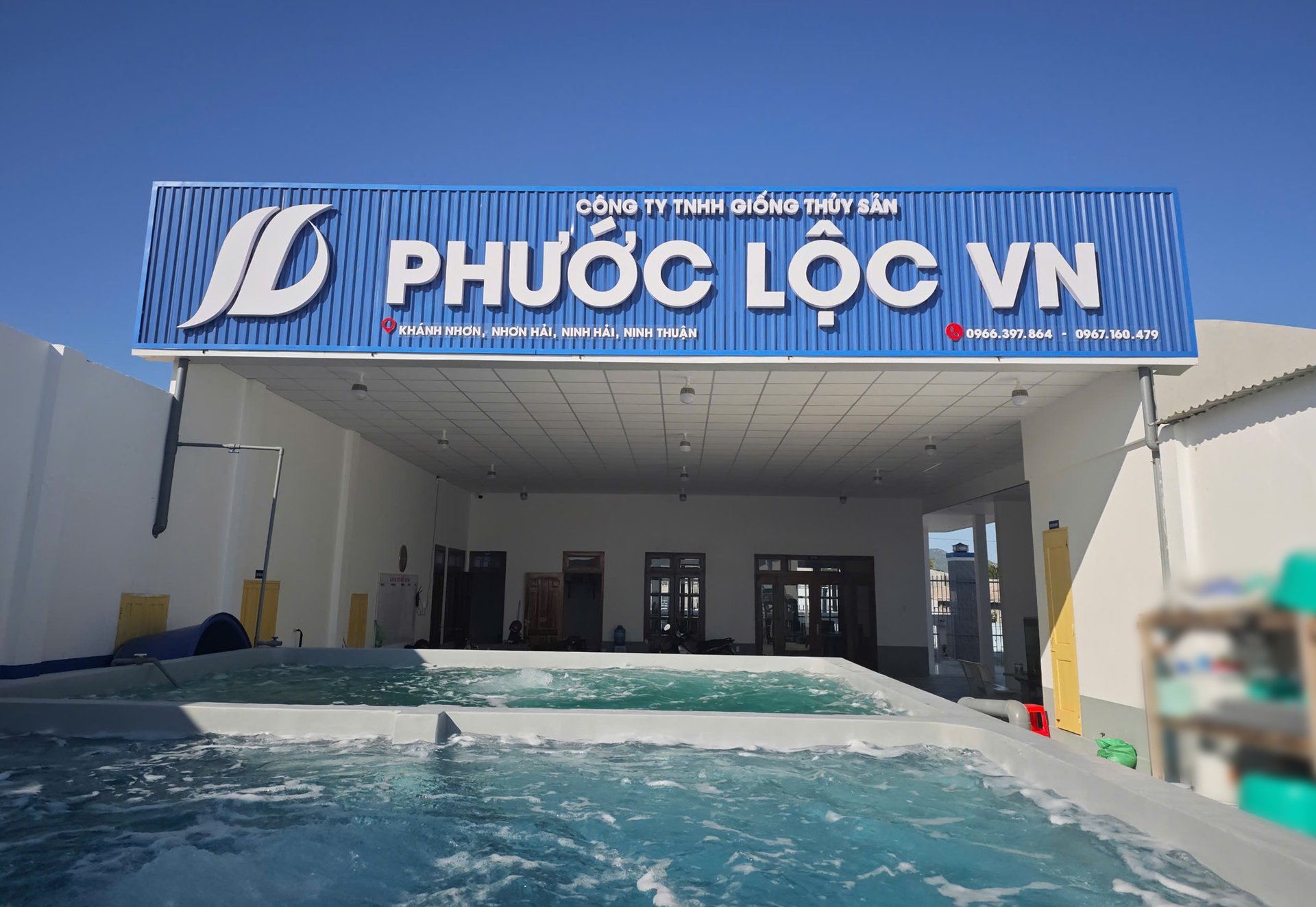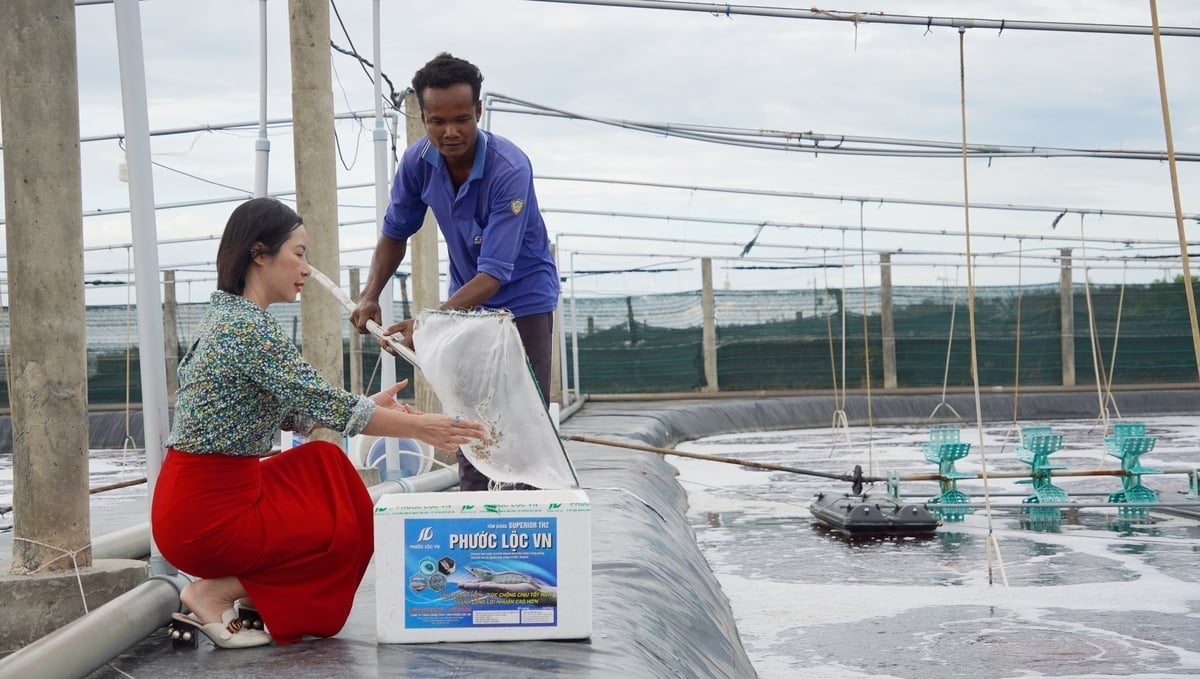December 20, 2025 | 15:48 GMT +7
December 20, 2025 | 15:48 GMT +7
Hotline: 0913.378.918
December 20, 2025 | 15:48 GMT +7
Hotline: 0913.378.918

Broodstock is the initial link in the contemporary shrimp production chain, yet it has the most significant impact on the complete farming process.
Many shrimp farmers in the Mekong Delta provinces, notably Tra Vinh, have experienced substantial losses due to the purchase of unregulated, low-quality seedstock of unknown origin. While these are inexpensive and easily accessible, they frequently contain latent pathogens, resulting in early mortality, low survival rates, and substantial economic losses. Furthermore, the irresponsible discharge of diseased shrimp into the environment can result in the transmission of infections to adjacent ponds, thereby putting entire farming areas at risk. Many households have experienced financial difficulties, including bankruptcy, debt, and the complete cessation of shrimp cultivation.
Broodstock is the initial link in the contemporary shrimp production chain, yet it has the most significant impact on the complete farming process. Healthy, disease-free seed stock with clear origin acts as a protective shield for the shrimp population, helping them withstand harsh environmental conditions and rising disease threats. In contrast, the potential failure of the entire crop, high mortality, and skyrocketing production costs are the typical consequences of poor-quality seed stock.
The proactive selection of certified broodstock is crucial to the sustainable development of Vietnam's shrimp industry and its competitiveness in global markets, particularly in light of the country's deteriorating climate conditions and increasing pollution. Therefore, to guarantee the profitability and success of their operations, farmers are advised to obtain broodstock from reputable, completely quarantined facilities.
Ms. Vu Thi Ha, in partnership with a team of top-tier aquaculture professionals, identified the strategic significance of proactive seedstock development and invested in a broodstock hatchery in Ninh Thuan. Farmers throughout the country benefit from the use of probiotics and herbal supplements in the production of Phuoc Loc VN crustaceans, which improve immunity and ensure consistent quality. To guarantee optimal performance, the production process is meticulously structured, from the selection of larvae to the maturation of shrimp.

Phuoc Loc VN healthy shrimp seeds are strictly controlled before being delivered to farmers.
According to Ms. Vu Thi Ha, Chairwoman and Director of Viet-France Biotechnology Co., Ltd., in-house production of high-quality broodstock is essential for reducing disease risks and enhancing shrimp aquaculture outcomes.
Ms. Ha stated that the Phuoc Loc VN production process is subject to stringent controls, which involve three distinct inspections to eradicate eight distinct pathogens. This guarantees rapid growth rates, robust disease resistance, and exceptional adaptability to extreme environmental conditions.

Ms. Vu Thi Ha checks Phuoc Loc VN fish after 12 days of stocking.
Mr. Thach Huong, a seasoned shrimp farmer in Tra Vinh, stated that his farming productivity was considerably enhanced after transitioning to Phuoc Loc VN broodstock and utilizing Viet-France herbal and probiotic products. He had previously experimented with a variety of seedstocks. He observed that the shrimp have a higher survival rate, are less susceptible to disease, and grow at a quicker rate, which leads to increased profits.
Mr. Thach Huong expressed his enthusiasm for the implementation of high-tech shrimp farming models. These models, in conjunction with the use of premium feed and quality broodstock, not only ensure the shrimp's health but also improve the management of the pond environment, thereby reducing the risk of disease and contamination. "This model also improves the quality of the final product and reduces costs associated with feed and veterinary drugs."
Adopting high-tech farming models has emerged as a strategic direction in many provinces across Vietnam, as shrimp farming continues to confront mounting challenges such as disease outbreaks, environmental degradation, and climate change. Using high-quality broodstock from Phuoc Loc VN Shrimp Breeding Co., Ltd., in conjunction with probiotics and herbal products from Viet - France Biotechnology Co., Ltd., has significantly increased the economic benefits for shrimp producers.
This is a sustainable agricultural model that is consistent with the broader trend of modern, climate-resilient agriculture. The key to unlocking greater value in Vietnam's shrimp sector is the close collaboration between enterprises and farmers, which involves the development of broodstock and the application of high-end technologies.
Shrimp seedstock, or broodstock, is of paramount importance for the Vietnamese shrimp farming industry. It directly impacts the quality, quantity, and profitability of shrimp farming operations, and thus the overall sustainability and economic health of the sector.
Developing a shrimp industry ecosystem requires multiple factors, including zoning shrimp farming areas, improving seed quality, promoting commercial shrimp farming, developing feed mills and establishing processing plants.
Translated by Linh Linh

(VAN) Dien Bien is speeding up ODA projects to respond to climate change and strengthen water management and disaster prevention infrastructure in pursuit of sustainable development.

(VAN) With high automation, large capacity, and a green development orientation, the Hai Duong Plant Branch is becoming an important anchor for the animal feed market.
/2025/12/01/2936-2-222331_70.jpg)
(VAN) Mortgaging his house and giving up a pharmaceutical management career, Mr. Nguyen Quang Duy succeeded in bringing Khanh Hoa's sea grapes to demanding markets such as Japan and the U.S.

(VAN) The large-scale agroforestry investment project aims to develop a leading sustainable agro-industrial center in Angola.
/2025/11/28/3433-1-212821_213.jpg)
(VAN) Many localities across the coconut land of Vinh Long are replicating emission-reducing models in production and daily life, contributing to the targets for emission reduction and green economic development.

(VAN) The green transition is an inevitable path for collective economy to achieve balanced growth and align with global trends.

(VAN) The TH Group is not only Vietnam’s leading clean-milk producer; it is also leaving a strong mark on sustainable development as it pursues the goal of carbon neutrality.